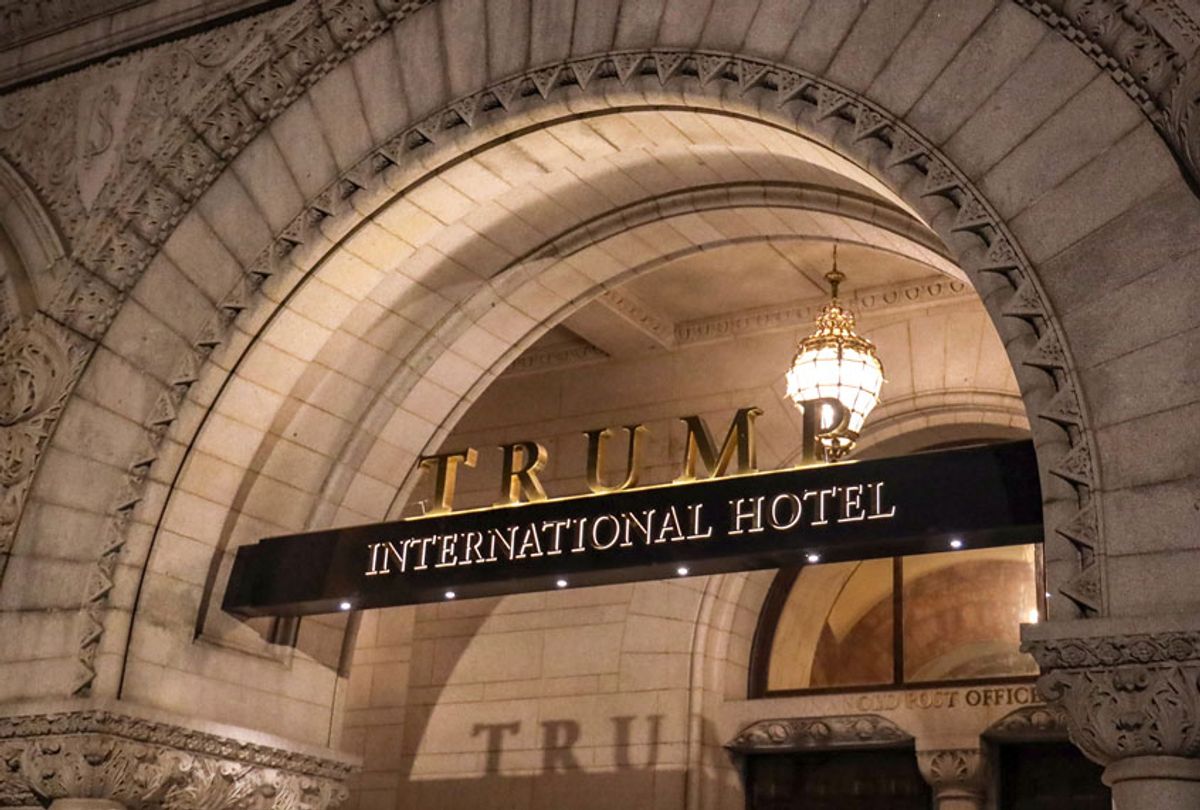A judge just ruled in favor of congressional Democrats as they attempt to hold President Donald Trump accountable for his alleged violations of the Constitution's Emoluments Clause.
U.S. District Court Judge Emmet Sullivan rejected an argument by Trump's Justice Department which held that the Constitution's Emoluments Clause only covers direct bribes for official presidential actions, according to Politico. As a result of Sullivan's decisions, a lawsuit filed by Democratic lawmakers will be allowed to continue, meaning that Democrats in the House of Representatives and Senate can learn more about whether Trump's business empire has been profiting by the political offices held by himself and others due to his presidency.
"I was gratified by Judge Sullivan’s ruling, which I believe accurately reflects the text, history, and purposes of the Constitution’s Emoluments Clauses," Professor Laurence H. Tribe, the Carl M. Loeb University Professor and Professor of Constitutional Law at Harvard Law School, told Salon by email. "From the outset of the three federal lawsuits invoking those clauses against President Trump, I’ve been involved in framing the litigation and look forward to its continued pursuit in all three federal circuits, one of which is still considering an appeal from a district court’s dismissal on standing grounds, a dismissal I regard as erroneous."
He added, "At the core of the three lawsuits is a principle of surpassing importance to the Framers and the Constitution’s design. It’s the principle that no American president should be beholden to any foreign power or, indeed, to anyone other than the American people."
In his legal opinion, Judge Sullivan explained that "the Court is persuaded that the text and structure of the Clause, together with the other uses of the term in the Constitution, support plaintiffs’ definition of 'Emolument' rather than that of the President."
He added, "In view of the overwhelming evidence pointing to over two hundred years of understanding the scope of the Clause to be broad to achieve its purpose of guarding against even the possibility of ‘corruption and foreign influence’ … the Court is persuaded that adopting plaintiffs’ broad definition of ‘Emolument’ ensures that the Clause fulfills this purpose."
Sullivan also emphasized that, based on the context surrounding the word "emolument" when the Constitution was ratified and its application to the relevant clause, it clearly meant to encompass all foreign payments of any kind.
"The Court is persuaded that the text and structure of the Clause, together with the other uses of the term in the Constitution, support plaintiffs’ definition of 'Emolument' rather than that of the President," Sullivan writes. "The Clause bans, without congressional approval, 'any present, Emolument, Office, or Title, of any kind whatever, from any King, Prince, or foreign State.'" He adds that "here, it is uncontested that the broad meaning and a narrower meaning tied to employment existed at the time the Constitution was ratified, and this expansive modifier, which as plaintiffs point out is used nowhere else in the Constitution, logically serves to ensure that the acceptance of any foreign Emolument, however defined, is prohibited without congressional consent."



Shares